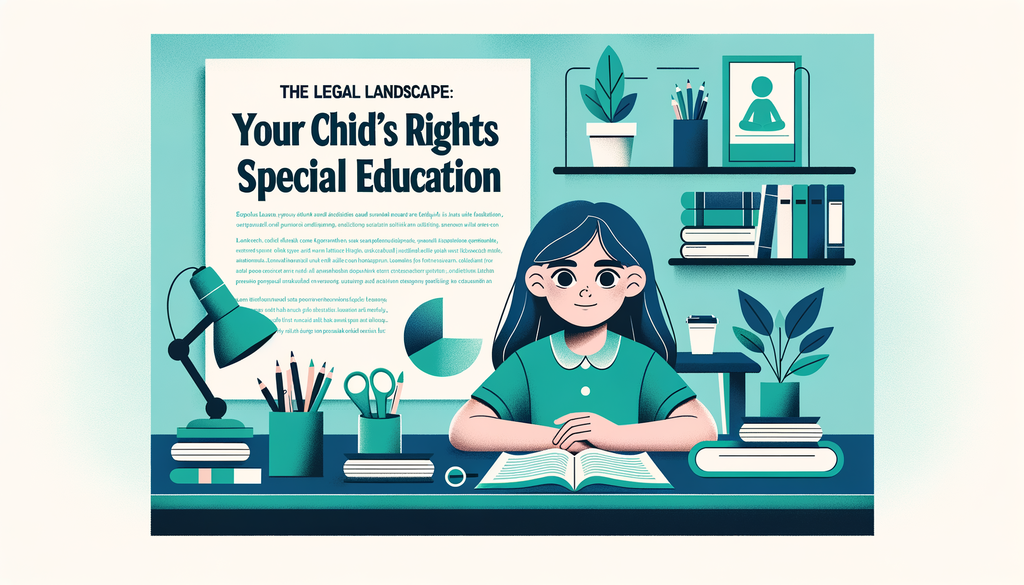The Legal Landscape: Your Child’s Rights in Special Education

The Legal Landscape: Your Child’s Rights in Special Education
In the realm of special education, understanding the law is as vital as knowing your ABCs. Laws ensure that your child gets the support they need to thrive, and guarantees their access to a ‘free and appropriate public education’. This post unpacks the key legislation concerning special education, and offers pragmatic advice on how to use these laws to your child’s advantage.
IDEA and Section 504: Cornerstone Laws in Special Education
The Individuals with Disabilities Education Act (IDEA) and Section 504 of the Rehabilitation Act anchor the legal framework of special education in the United States. These laws are designed to tackle discrimination and ensure equal opportunities for children with special needs.
Understanding IDEA: Charged with safeguarding educational rights for children with disabilities, IDEA mandates schools to develop an Individualized Education Program (IEP) for each eligible child with a disability. Learn more about this crucial device in our blog post Understanding the IEP Process.
Section 504 Explained: Section 504 guarantees certain protections for children with disabilities, ensuring they have the same access to education as their non-disabled peers. It covers services and accommodations within the school setting, from preferential seating to time extensions on exams.
The Role of Parents in Upholding These Laws
As the primary advocate for your child, it’s crucial to understand these laws, and be proactive in ensuring their rights are respected. Here are some practical steps you can take:
- Educate yourself: Stay informed about your child’s rights. Attend workshops, read relevant articles, join advocacy groups, and network with other parents.
- Ensure you’re part of the IEP or 504 planning team: Your input is invaluable in shaping your child’s educational plan. Make sure your ideas are considered and included.
- Maintain open lines of communication: Regularly communicate with your child’s educators and the school’s special education team. This can foster better collaboration and mutual support.
When Your Child’s Rights Are Compromised: What You Can Do
If you believe your child’s rights are not being honored, address the issue promptly. For minor infractions, consider first discussing your concerns directly with the school’s administration. For more serious violations, you may need to file a state complaint, initiate a due process hearing, or approach advocacy and legal groups specializing in special education.
Navigating the legal landscape can be daunting, but remember you’re not alone. A myriad of resources – from online advocacy groups to legal aid societies – can provide expert help. Leave no stone unturned in advocating for your child and remembering the most crucial factor: Your relentless pursuit of their well-being.
Be an Informed Advocate
The path to effective advocacy and ensuring your child reaps the benefits of special education is paved with knowledge. By understanding the laws, engaging proactively with your child’s teachers, and responding firmly to any violations, you can ensure your child gets the very best out of their educational experience.
Stay informed by exploring our blog posts that offer deeper insights into the many facets of special education - from monetary considerations like Financial Planning for Special Education Needs to deeply personal narratives like A Mother’s Journey Raising a 2e Child and more.
The journey to advocacy is a marathon that requires persistence and knowledge. But remember, you’re not alone in this race. Connect with others on a similar path via support groups and advocacy coalitions, delve further into the realm of special education laws, and keep the discussion going.